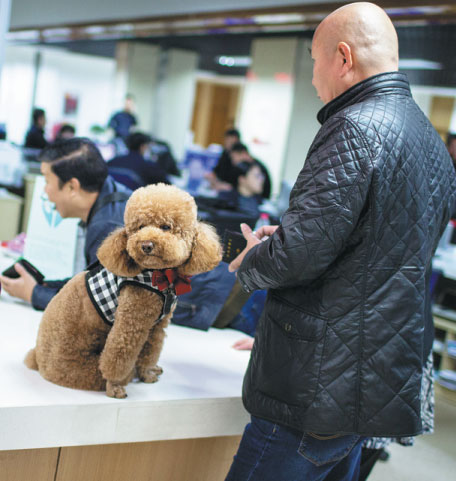Restrictions, criticism faced by dog owners


Such attacks can happen on the spur of the moment; it can be hard to keep dogs under control in these situations; and the cost of law enforcement is quite high," Wang said.

Urban management law enforcement teams rarely track all dogs in cities to see whether the owners are abiding by the regulations, she said, adding that public awareness needs to be greatly improved.
Liu Xin, a professor at the School of Public Administration and Policy at Renmin University of China, agreed and said for people who don't have dogs, the pets pose a potential physical or psychological threat.
In interviews with Southern Weekly, a newspaper in Guangdong province, he said many dog owners live in cities, but the pace of urbanization has outpaced that to which they are accustomed. This has resulted in them thinking or living in "rural ways", where they seldom consider the feelings of others and are unwilling to exercise restraint," Liu said."These are the root causes of conflict."
Rising tensions have resulted in incidents of dogs being poisoned with isoniazid, an antibiotic used to treat tuberculosis. When dogs eat the tablets, which are sometimes placed in food, they may die.
Yao, the campaign manager, said killing dogs with poison will never solve the problem. On the contrary, it will encourage violence.
She suggested holding regular training sessions for dog owners, implanting dogs with electronic chips and imposing tough fines in cases where animals are abandoned.
- Snapshots of Chinese space station passing in front of sun
- China accelerates nuclear fusion engineering, targeting power generation demonstration by 2030
- Xinjiang leads China in cross-border rail traffic, central Asian connectivity in 2025
- Astronauts say training helped ensure safe return
- FAST reveals insights into cosmic signals
- Year's first private rocket mission takes off




































